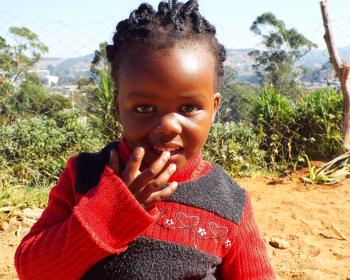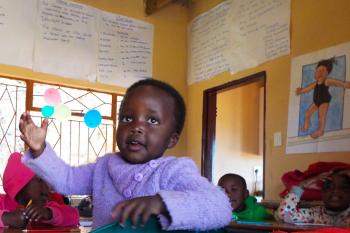HIV/AIDS continues to impact the lives of thousands of children
-70711_jpg_1.jpg?width=800)
Mbabane is Eswatini’s capital city and has a population of approximately 100,000. Tourism and sugar form the basis of the local economy, and there are tin and iron mines nearby. Urban development in Mbabane has been very much unplanned from the beginning, with the majority of people living in informal settlements where people maintain a semi-traditional lifestyle. However, this way of life has negative impacts on the environment and on people’s health. Efforts to upgrade and integrate these areas have yielded some first results, but the informal settlements are also the areas that experience the highest population growth. This means that thousands of families continue to live in sub-standard housing, with shared pit latrines and running water taps. Most people cannot afford electricity and there is no street lighting in these areas.
HIV/AIDS also severely affects the local population. Many children have lost the care of their parents and often the oldest sibling is then left in charge of the family. Such child-headed households, as well as those headed by elderly relatives, are in a particularly vulnerable position: they often face a lack of food and a lack of opportunity for income generation. Families affected by HIV/AIDS also face stigma, which can have a detrimental psychological impact on children in particular. Eswatini is one of the five Southern African countries most severely affected by the pandemic: every fourth citizen is HIV positive. The rate is higher for women, at 30 per cent, and it is also higher in urban areas, especially in Mbabane.
Health care and education are in great danger in Eswatini
2011 saw Eswatini plunge into a deep economic crisis that caused schools and the university to close, fuel shortages, and unpaid wages for thousands and thousands of workers including hospital staff. The 60 per cent of the nation’s schoolchildren who classify as “orphans or vulnerable children” do not pay school fees. There were suggestions that schools should start charging these children fees, which would mean that many would not be able to get an education. In some case, schools have in fact been demanding top-up fees, but families haven’t been able to afford them.
What we do in Mbabane
-70708_jpg.jpg?width=800)
SOS Children’s Villages began its work in Mbabane in 1989. In recent years, we have expanded our family strengthening programme in the region so as to reach as many struggling families as possible. The aim is to alleviate hardship and maintain family stability so that children will be safe and protected and grow up in a loving home.
The SOS Social Centre in Mbabane ensures that children have access to essential health and nutritional services, as well as education. We provide food assistance, educational scholarships, literacy classes, and help with the renovation of homes. We assist parents by providing guidance on income-generating skills, individual and communal food production, parenting practices, as well as counselling and psychological support where needed. Our support goes out especially to families who have been affected by HIV/AIDS.
For children from the region who are no longer able to live with their parents, 13 SOS families can provide a loving home for up to 110 children. In each family, the children live with their brothers and sisters, affectionately cared for by their SOS mother. The children attend the SOS Kindergarten in Mbabane together with children from the neighbourhood, which ensures that they are integrated into the local community from a young age.
The SOS Youth Programme continues to support young adults once they have moved out of their SOS family home in order to study, receive training or work.